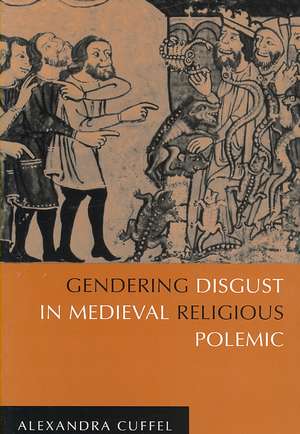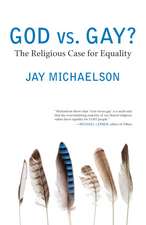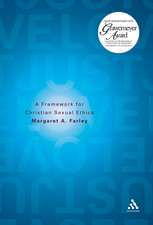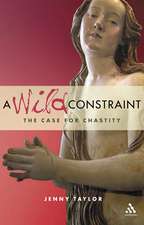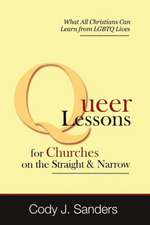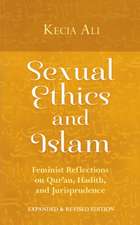Gendering Disgust in Medieval Religious Polemic
Autor Alexandra Cuffelen Limba Engleză Paperback – 31 aug 2007
In Gendering Disgust in Medieval Religious Polemic, Alexandra Cuffel analyzes medieval Jewish, Christian, and Muslim uses of gendered bodily imagery and metaphors of impurity in their visual and verbal polemic against one another. Drawing from a rich array of sources—including medical texts, bestiaries, Muslim apocalyptic texts, midrash, biblical commentaries, kabbalistic literature, Hebrew liturgical poetry, and theological tracts from late antiquity to the mid-fourteenth century—Cuffel examines attitudes toward the corporeal body and its relationship to divinity. She shows that these religious traditions shared notions of the human body as distasteful, with many believers viewing corporeality and communion with the divine as incompatible. In particular, she explores how authors from each religious tradition targeted the woman’s body as antithetical to holiness.
Foul smell, bodily fluids and states, and animals were employed by these religious communities as powerful tropes, which they used to mark their religious opponents as sinful, filthy, and unacceptable. By defining and denigrating the religious “other,” each group wielded bodily insult as a means of resistance, of inciting violence, and of creating community boundaries. Representations of impurity or filth designed to inspire revulsion served also to reassure audiences of their religious and sometimes physical superiority and to encourage oppressive measures toward the minority.
Yet, even in the midst of opposing one another, their very polemic demonstrates that Jews, Christians, and Muslims held basic cultural assumptions and symbols in common while inflecting their meanings differently.
“Alexandra Cuffel's bold study interprets the inter-religious polemic of medieval Jews, Christians and Muslims in the context of late-antique disgust for the body, especially the female body, shared by all three traditions. This will be a very influential book for medievalists in many fields.” —E. Ann Matter, University of Pennsylvania
“With Gendering Disgust in Medieval Religious Polemic, Alexandra Cuffel has produced a remarkably original, ambitious, and important book that sets the agenda for future discussions.” —Peter Biller, University of York
“‘Filth,’ ‘putrid,’ ‘excrement,’ ‘foul,’ ‘bloody discharge,’ ‘stench,’—as these and other terms of physical and moral revulsion unfold Gendering Disgust grabs our attention and refuses to let go. Alexandra Cuffel offers her readers a riveting and enlightening comparative socio-religious study of the body’s place in religious polemic from late antiquity and the early Middle Ages to the thirteenth century. It is a singularly engaging and disturbing study highlighting the polemical lexicon and registers shared by pagans, Jews, Christians, and Muslims.” —Ross Brann, Cornell University
| Toate formatele și edițiile | Preț | Express |
|---|---|---|
| Paperback (1) | 329.67 lei 6-8 săpt. | |
| MR – University of Notre Dame Press – 31 aug 2007 | 329.67 lei 6-8 săpt. | |
| Hardback (1) | 837.40 lei 6-8 săpt. | |
| MR – University of Notre Dame Press – 29 noi 2021 | 837.40 lei 6-8 săpt. |
Preț: 329.67 lei
Nou
Puncte Express: 495
Preț estimativ în valută:
63.09€ • 65.62$ • 52.08£
63.09€ • 65.62$ • 52.08£
Carte tipărită la comandă
Livrare economică 12-26 aprilie
Preluare comenzi: 021 569.72.76
Specificații
ISBN-13: 9780268023676
ISBN-10: 0268023670
Pagini: 448
Ilustrații: 10 halftones
Dimensiuni: 192 x 228 x 30 mm
Greutate: 0.6 kg
Ediția:1
Editura: MR – University of Notre Dame Press
ISBN-10: 0268023670
Pagini: 448
Ilustrații: 10 halftones
Dimensiuni: 192 x 228 x 30 mm
Greutate: 0.6 kg
Ediția:1
Editura: MR – University of Notre Dame Press
Recenzii
“Cuffel's work, through its emphasis on the role of bodily functions in religious polemic, contributes greatly to our understanding of interfaith and intercommunal relations in late antique and medieval cultures. What is most compelling about Gendering Disgust is the sheer volume of provocative and entertaining examples Cuffel employs to illustrate these compelling theoretical points.” —Bulletin of the School of Oriental and African Studies
“Alexandra Cuffel succeeds in constructing a masterful analysis of the complex development of religious polemics among medieval Christian, Jewish, and Muslim communities. . . . Overall, Cuffel has produced a seminal work in the use of gendered metaphors of the body in medieval religious polemics.” —Medieval Feminist Forum
“Alexandra Cuffel engages in extraordinarily incisive analysis of a chronologically and linguistically breathtaking range of texts that explore the rhetoric of physical disgust in the polemic literature of Christians, Muslims, and Jews against one another. One cannot help but be impressed with the breadth of Cuffel’s analysis and by the manner in which her command of the sources in Latin, Hebrew, Arabic, and various vernaculars enables her to see both surfaces of the polemics at hand.” —American Historical Review
“Alexandra Cuffel’s Gendering Disgust takes the evolving field of medieval religious polemics into welcome new directions that build on different scholarly traditions, which she has combined in new and exciting ways. Cuffel’s extraordinarily stimulating new book extends the discussion further precisely in intercultural directions. Overall, Cuffel is to be congratulated for a book that is a very welcome addition to the growing field of medieval body studies, gender studies, history of emotions, as well as of interreligious cultural polemics.” —Speculum
“. . . Cuffel ponders the psychologically disturbing fact that Islamic, Jewish, and Christian medieval polemic equated the feminine with pollution and then, in turn, gendered the despised Other as feminine. Through both her noteworthy ability to work with Ancient Greek, Latin, Hebrew, and Arabic texts and her skill for locating unsettling divisive polemic, Cuffel’s book in many ways has no peer. A necessary text for anyone interested in the subject of medieval Otherness because of the wealth of information amassed in one volume. . . . Cuffel’s Gendering Disgust offers a refreshing view of medieval religious polemic, and for this reason, Cuffel’s book should not be limited to readers interested only in gender studies.” —Church History
Notă biografică
Alexandra Cuffel is assistant professor of history at Macalester College.
